The Supremes earned their biggest hit of the post-Diana Ross era with 1970’s psychedelic pop symphony “Stoned Love,” a showcase for the vocals of Ross’ replacement, Jean Terrell.
Motown Records founder Berry Gordy Jr. first revealed his plans to spin Ross out of the Supremes during a spring 1967 meeting at his Detroit mansion. “Berry spoke openly about making Diana a solo star – a chance [fellow Supremes Mary Wilson and Florence Ballard] grudgingly agreed to,” writes Nelson George in Where Did Our Love Go? The Rise and Fall of the Motown Sound. Ballard spiraled deeper into depression and alcoholism in the weeks to follow, however, and when she showed up inebriated ahead of the trio’s July 1 performance at Las Vegas’ Flamingo Hotel, Gordy dismissed her from the act she co-founded and named as her replacement Cindy Birdsong, formerly of Patti LaBelle and the Blue Belles. Beginning with their next single, “Reflections,” the group was officially renamed Diana Ross and the Supremes, and by 1968, Gordy was actively seeking candidates to replace Ross in anticipation of her first solo recordings.
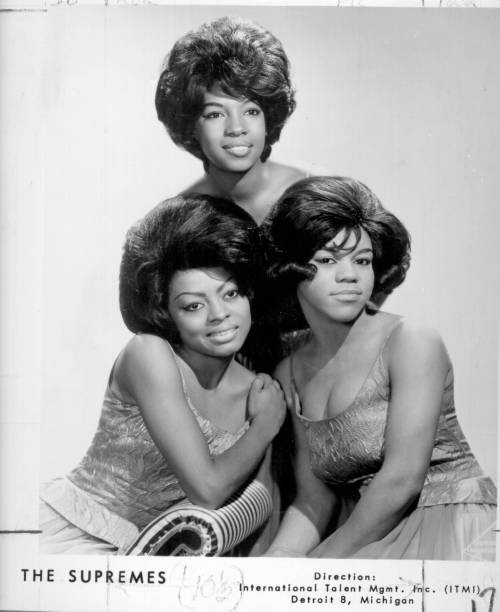
Gordy weighed a number of options, including Syreeta Wright (who performed demo vocals for the Supremes’ chart-topping “Love Child”), before signing Terrell to Motown in 1969. Gordy discovered the 24-year-old singer performing in a Miami nightclub as a member of the Heavyweights, the backing group for her brother Ernie Terrell, the former World Boxing Association heavyweight champion. (Terrell lost by a unanimous decision when he squared off against the other world heavyweight champion of the era, Muhammad Ali, in a 1967 title unification bout.) Jean Terrell was introduced to the press and public as the Supremes’ new lead vocalist on Jan. 14, 1970, joining the group onstage during Ross’ farewell performance at Las Vegas’ Frontier Hotel. Wilson later wrote that Gordy immediately regretted his decision and suggested replacing Terrell with Wright; Wilson vetoed the move, however, preferring to stay the course with Terrell.
The new-look Supremes made their bow a month later with the buoyant “Up the Ladder to the Roof,” which rose to number ten on the Billboard Hot 100 and number five on the soul chart – the first of eight Top 40 singles posted by the group in the aftermath of Ross’ departure. Both “Up the Ladder to the Roof” and its hit follow-up “Everybody’s Got the Right to Love” were produced by Frank Wilson, who previously served as executive producer on the 1968 collaborative album Diana Ross & the Supremes Join the Temptations. Wilson (no relation to Mary) envisioned a broad musical canvas for the revamped Supremes lineup: “I felt the fusion of rock with R&B could not do anything but enhance the direction of R&B/pop music,” he explained in an interview conducted for the 2000 retrospective box set The Supremes. “I took advantage of what I thought were excellent musical influences, from Iron Butterfly to Neil Diamond.”
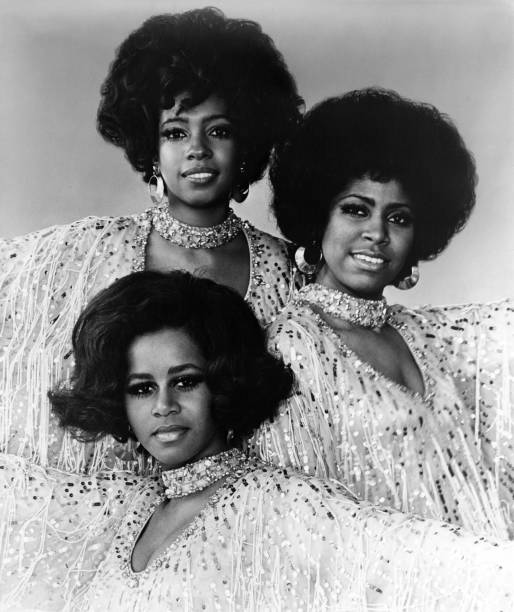
Wilson wrote “Stoned Love” in collaboration with Kenny Thomas, a Detroit-area teen whose original songs were featured on influential DJ Eddie Durham’s WJLB-AM radio program. Wilson heard the broadcast and tracked down Thomas’ address: “He came by and had me play several of the songs I played [on WJLB],” Thomas explained to Motown historian Adam White. “He asked if I had anything else, and I said ‘Yes, there’s this song I’m working on right now, that I haven’t actually performed yet.’ And I played ‘Stoned Love.’ He said ‘Oh my goodness, this is wonderful.’ I’m 17, I’m beaming because I’m thinking ‘My family is finally getting a break.’ Frank had me play the song about ten times.” Wilson invited Thomas to visit his home in Detroit’s Palmer Woods district, and asked to hear “Stoned Love” again. Thomas returned to the producer’s house the following day, and this time, Mary Wilson was in attendance; she too flipped for “Stoned Love,” and from there, Frank Wilson recruited Motown arranger David Van DePitte to formalize Thomas’ ideas.
“Frank said ‘Kenny has written this tune, and I want you to hear it,’” Van DePitte told White. “We went down in the basement, and this kid gets out a guitar. There were only two strings on it. The kid had worked out a system of binary chords that he could plunk along, and he was singing this tune. The problem was that not having the third member, at least, of the chord structure, you don’t know whether he is in major or minor – you don’t know exactly what the changes are.” Thomas played “Stoned Love” once more, this time with tape rolling: “Then Frank sat down with the kid at the piano, and went over what he thought he heard.”
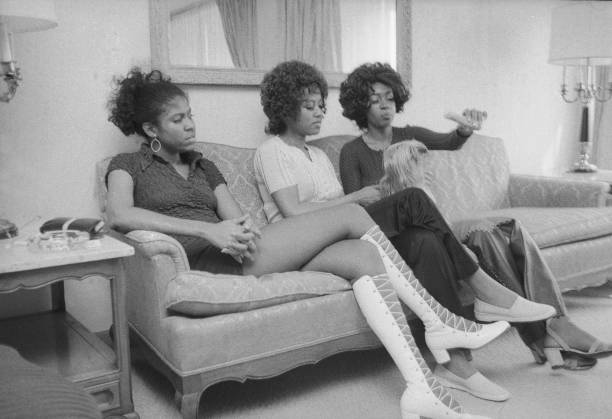
Wilson recorded the majestic “Stoned Love” over the course of five sessions at Motown’s Studio B between March 10 and June 8, 1970, at various points bringing in members of the Funk Brothers (including bassist Bob Babbitt) as well as at least 30 other musicians. Terrell’s final overdubs were captured at an unknown studio in Washington, D.C. during the Supremes’ residency at the Shoreham Hotel: while her performance evokes the silky seductiveness of the group’s Ross-era classics, Terrell also projects a soulfulness and strength that are uniquely her own. Berry Gordy still had his doubts, however. “I remember that he hated that record,” Frank Wilson told Adam White. “He called it garbage.” Gordy finally agreed to release “Stoned Love” as a single only after Motown’s executive vice president and general manager Barney Ales promised that it would be played across the RKO General Broadcasting radio network, which included some of the most influential Top 40 and urban contemporary stations in North America.
“Stoned Love” also faced resistance in some quarters over concerns its title advocated drug use. CBS network executives even cut the Supremes’ live performance of the song from a November 1970 episode of The Merv Griffin Show. (“Motown is justifiably hot about the censorship,” the Detroit Free Press reported following the incident.) Thomas originally penned the song under the title “Stone Love,” however: “We had civil rights issues going on in this country. Vietnam, drugs, ‘Make love, not war,’” he told White. “But stones are forever – they don’t break or come apart. Love will be here forever. It’s not important about color and things of that nature.” While no one involved with “Stoned Love” agreed on how, when or why the “d” was added to the title prior to release, Thomas chose to credit his contributions to the alias “Yennek Samoht” – his name spelled backwards, with an extra “e” to guide pronunciation – in tribute to Motown superstar Stevie Wonder, who in 1968 recorded a self-titled collection of instrumentals under the name “Eivets Rednow.” Thomas also noted the “Yennek Samoht” pseudonym’s phonetic similarity to that of another of his musical idols, singer Nina Simone.
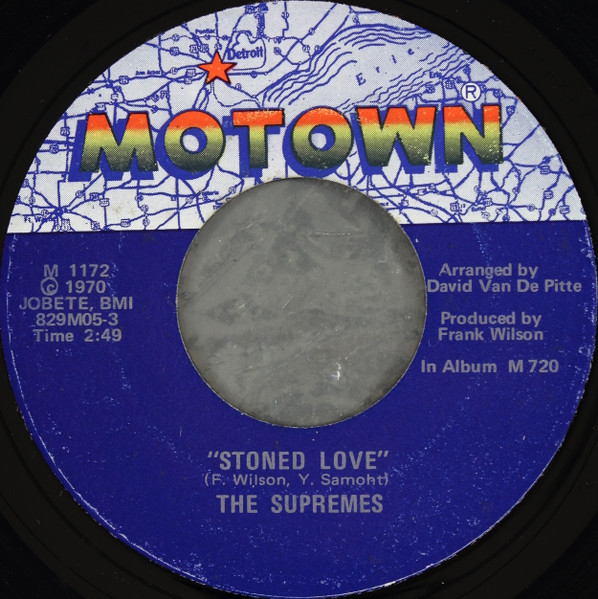
“Stoned Love” went on to become the final Supremes single to top Billboard’s R&B chart, also reaching number seven on the pop Hot 100. The trio reunited with Frank Wilson for the 1971 follow-up “Nathan Jones,” which features Terrell, Birdsong and Mary Wilson singing lead in unison – a rarity within the vast Supremes catalog. Smokey Robinson assumed writing and producing duties for 1972’s “Floy Joy,” their last Top 20 entry, followed by “Automatically Sunshine,” their final Billboard Top 40 hit during Terrell’s tenure as lead.
With Motown focused on relocating its offices from Detroit to Los Angeles – and with Diana Ross poised to achieve Hollywood stardom thanks to her Oscar-nominated performance in the Billie Holiday biopic Lady Sings the Blues – the Supremes were no longer a priority for label executives, and in April 1972 Birdsong resigned to start a family. She was replaced by Lynda Laurence, a former member of Stevie Wonder’s backing unit Third Generation, ahead of sessions for the LP The Supremes Produced and Arranged by Jimmy Webb; sales disappointed, and in late 1973, Terrell and Laurence approached Wilson about leaving Motown for another label. Terrell and Laurence instead quit upon discovering that Motown, not Wilson, owned the rights to the Supremes’ name, and Terrell landed at A&M Records to record her solo debut I Had to Fall in Love, released in 1978 – roughly a year after the Supremes (now Mary Wilson alongside Scherrie Payne and Susaye Greene) performed their farewell concert at London’s Drury Lane Theater.
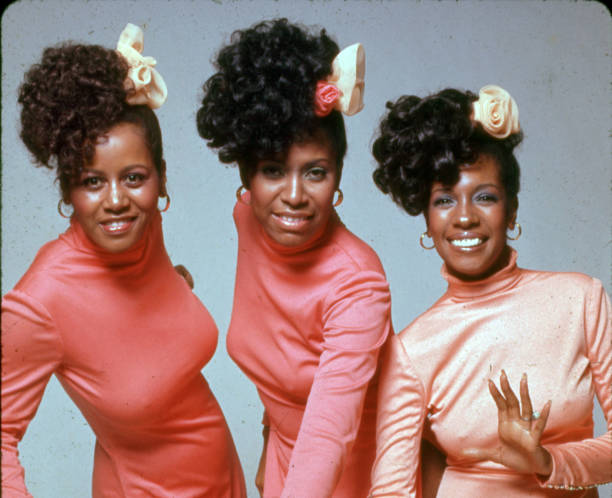
Kenny Thomas all but vanished from Motown lore in the wake of “Stoned Love,” with credits on just a handful of additional recordings including the Four Tops’ “Sing a Song of Yesterday” and the unreleased Jackson 5 track “Come Join My World.” Mary Wilson saluted Thomas’ moment of enduring glory in the second of her memoirs, 1990’s Supreme Faith: Someday We’ll Be Together, writing “Just one listen to ‘Stoned Love’ and you knew it that was about love, peace and faith in God, not getting stoned on drugs.”






